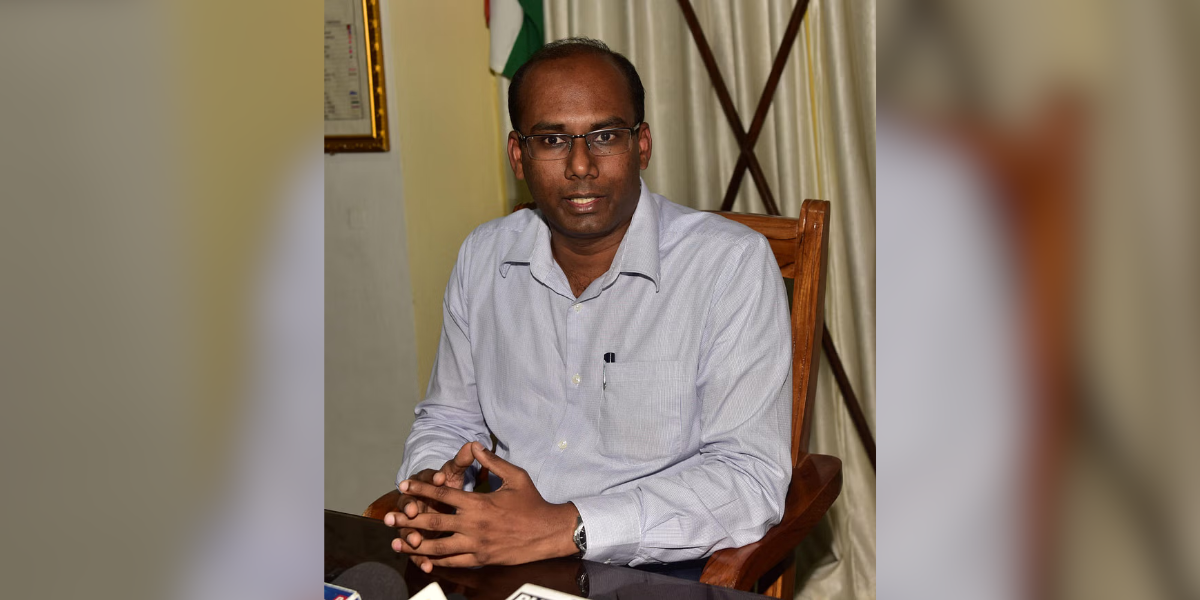The number of JN.1 cases has crossed the 1000 mark, with Karnataka reporting the highest number of cases at 214, stated INSACOG.

Karnataka Health Commissioner Randeep D. (LinkedIn)
The Karnataka Health Department stated, on Thursday, 11 January, that the last rites of Covid victims will be performed in all crematoriums, as per the guidelines provided by the government.
A circular was issued in this regard by Health and Family Welfare Services Commissioner Randeep D after some crematoriums in Bengaluru refused to accept bodies of those who succumbed to the virus.
“There are no specific designated facilities in Karnataka for the cremation of deceased Coronavirus persons. In a circular issued on 11 January, it has been stated that the last rites of Covid victims shall be performed in all crematoriums, as per the guidelines provided by the government, and no crematorium shall refuse to accept such deceased persons,” Randeep told PTI.
ಕೋವಿಡ್-19 ಸೋಂಕಿನಿಂದ ಮರಣ ಹೊಂದಿದವರ ಅಂತ್ಯಕ್ರಿಯೆಯನ್ನು ನಡೆಸಲು ಬಿಬಿಎಂಪಿ ಹಾಗೂ ಜಿಲ್ಲೆಗಳ ವ್ಯಾಪ್ತಿಯಲ್ಲಿ ಬರುವ ಚಿತಾಗಾರ/ಸ್ಮಶಾನ/ರುದ್ರಭೂಮಿಗಳಲ್ಲಿ ತರುವ ಮೃತದೇಹಗಳನ್ನು ನಿರಾಕರಿಸದೆ ಅಗತ್ಯ ಮುಂಜಾಗ್ರತಾ ಕ್ರಮಗಳನ್ನು ಕೈಗೊಂಡು ಅಂತ್ಯಕ್ರಿಯೆಯನ್ನು ನಡೆಸಲು ಮಾನ್ಯ ಆಯುಕ್ತರು ಸುತ್ತೋಲೆಯನ್ನು ಹೊರಡಿಸಿರುತ್ತಾರೆ. #COVID19 pic.twitter.com/0MDTFhcylL
— K'taka Health Dept (@DHFWKA) January 11, 2024
On Friday, 12 January, the number of cases of Covid subvariant JN.1 has crossed the 1,000 mark with Uttar Pradesh becoming the latest state to join the list of 16 states and UTs which have detected its presence, according to INSACOG.
The data compiled by the Indian SARS-CoV-2 Genomics Consortium (INSACOG) showed that Karnataka has reported the highest number of cases at 214, followed by Maharashtra (170), Kerala (154), Andhra Pradesh (189), Gujarat (76), Goa (66), Telangana and Rajasthan (32 each), Chhattisgarh (25), Tamil Nadu (22), Delhi (16), Uttar Pradesh (6), Haryana (5), Odisha (3), West Bengal (2), and Uttarakhand (1), according to the data.
A total of 1,013 cases of JN.1 have been detected till now across the 16 states and UTs.
The Union government has asked the states and Union territories to maintain a constant vigil amid an uptick in the number of Covid cases and the detection of the JN.1 sub-variant in the country.
They have also been asked to regularly monitor and report district-wise cases of Influenza-like Illness (ILI) and Severe Acute Respiratory Illness (SARI) from all health facilities for early detection.
At the beginning of the year, INSACOG stated that seven out of 10 samples sent for genome sequencing are testing positive for the JN.1 variant of Covid-19.
Despite its ability to rapidly spread, the infection is milder and mostly asymptomatic. Information from across the world suggests that the cases are mild, with symptoms such as a cold, sore throat, low-grade fever (around 100 degrees Fahrenheit), body pain, weakness, and dry cough.
People are recovering quickly as these symptoms are generally manageable with symptomatic treatments like fever-reducing medication and pain relief.
India recorded 609 new cases of Covid, while the number of active cases of the infection has declined to 3,368, as per data from the Union Health Ministry’s website on Friday, 12 January.
Three deaths — two in Kerala and one in Karnataka — have been reported in a span of 24 hours, according to the ministry’s data updated at 8 am.
Of the 609 new cases, Karnataka reported the highest number of new cases, with 240 cases. This was followed by Maharashtra with 144 new cases and Kerala with 72 new cases between 11 January 8 am and 12 January 8 am.
The current number of active cases in the three states stand at 993 (Karnataka), 824 (Maharashtra), and 546 (Kerala). Barring Karnataka, which saw an increase in the number of active cases, the other two states saw a decline.
Karnataka also saw the most number of discharges, with 220 patients getting discharged from hospital. This was followed by Maharashtra with 169 patients discharged.
Tamil Nadu, Andhra Pradesh, Telangana have reported 16, 7, and 5 new cases on Friday, respectively, with 144, 79, and 38 active cases in these states.
The number of daily cases had dropped to double digits till 5 December 2023, but cases began to increase after the emergence of a new sub-variant — JN.1 — and cold weather conditions.
After 5 December, a maximum of a single-day rise of 841 new cases was reported on 31 December 2023, which is 0.2 percent of the peak cases reported in May 2021, official sources said.
Of the total active cases, around 92 percent are recovering under home isolation.
“The currently available data suggests that the JN.1 subvariant is neither leading to an exponential rise in the new cases nor a surge in the hospitalisation and mortality,” an official source stated.
India has witnessed three waves of Covid in the past with the peak incidence of daily new cases and deaths being reported during the delta wave during April-June 2021. At its peak, 414,188 new cases and 3915 deaths were reported on May 7, 2021.
The number of people who have recuperated from the disease stands at over 4.4 crore with a national recovery rate of 98.81 percent, according to the ministry’s data.
According to the data, 220.67 crore doses of COVID-19 vaccines have so far been administered in the country.
(With PTI inputs)

Jul 27, 2024

Jul 26, 2024

Jul 26, 2024

Jul 26, 2024

Jul 26, 2024

Jul 26, 2024